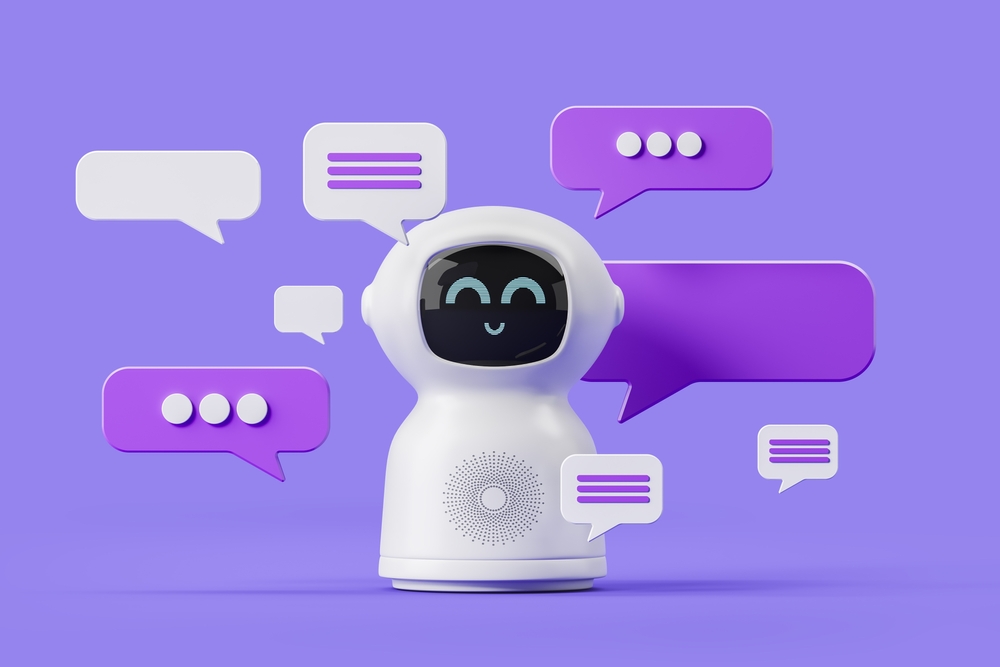As artificial intelligence (AI) continues to revolutionize the marketing landscape, understanding AI terminology is becoming an essential skill for marketers. With AI-powered tools enhancing everything from data analysis to personalized customer experiences, having a strong grasp of the language around AI can help marketers stay ahead. Below, we cover key AI terminology that every marketer should know in 2024.
Artificial Intelligence (AI)
AI refers to machines or software that simulate human intelligence. In marketing, AI applications help analyze vast amounts of data, predict customer behaviors, automate workflows, and more. By understanding AI fundamentals, marketers can better navigate tools that use AI and leverage them to optimize campaigns and customer engagement.
Machine Learning (ML)
Machine learning is a subset of AI focused on algorithms that enable systems to learn and improve from experience without explicit programming. ML algorithms analyze data patterns and make decisions. In marketing, ML applications include predictive analytics, customer segmentation, and targeted advertising, where ML helps identify patterns that can drive smarter, more efficient marketing strategies.
Natural Language Processing (NLP)
NLP involves teaching machines to understand and respond to human language. From chatbots to sentiment analysis, NLP is transforming how brands interact with customers. Marketers use NLP to analyze customer feedback, understand consumer sentiment, and personalize customer interactions in real time, enhancing the overall user experience.
Predictive Analytics
Predictive analytics involves using historical data to forecast future events or behaviors. AAI-powered predictive analytics tools help marketers anticipate customer actions, such as predicting when a customer might churn or what products they’re likely to purchase next. This allows for highly personalized marketing and increases the chances of engagement and conversion.
Customer Segmentation
Customer segmentation divides a larger customer base into smaller groups based on shared characteristics. AI enables advanced segmentation by analyzing customer behaviors, interests, and demographics. With AI-driven segmentation, marketers can create more personalized, relevant campaigns targeted to specific audience segments, maximizing campaign effectiveness.
Personalization
AI enables deep personalization by analyzing customer data to deliver individualized experiences, from personalized email content to product recommendations on e-commerce sites. In 2024, personalization has evolved from simple name inclusion to dynamic, behavior-based content. Brands are now tailoring their marketing efforts to meet each customer’s preferences in real time.
Chatbots
Chatbots are AI-driven programs that simulate human conversation. Integrated into websites, social media, and messaging apps, chatbots handle customer inquiries, provide product recommendations, and assist with purchases. They help marketers streamline customer service, gather data, and maintain 24/7 customer engagement, which is essential in today’s on-demand culture.

Data-Driven Marketing
Data-driven marketing uses insights from data to guide marketing decisions. AI enhances data-driven marketing by uncovering patterns and insights that might not be visible to humans. By using AI tools, marketers can better understand customer behaviors, predict trends, and optimize strategies, resulting in more impactful campaigns.
Deep Learning
A specialized area of machine learning, deep learning involves algorithms inspired by the human brain, called neural networks. Deep learning processes large amounts of data, enabling applications like image recognition, voice recognition, and natural language understanding. For marketers, deep learning drives advanced tools in customer segmentation, recommendation engines, and even creative generation.
Programmatic Advertising
Programmatic advertising uses AI to automate the buying and selling of online ads. It optimizes ad placements in real time, ensuring the right ad reaches the right audience at the right time. Therefore, marketers can maximize reach and engagement while optimizing ad spend by leveraging programmatic advertising, m.
Generative AI
Generative AI is a type of AI that creates new content, such as text, images, and even music, based on existing data. Tools like ChatGPT, for example, can help marketers draft content, brainstorm ideas, or personalize email copy. With generative AI, marketing teams can speed up content creation and experiment with fresh, creative approaches.
The Future of AI in Marketing
AI marketing tools continue to evolve, offering more robust and dynamic solutions for enhancing customer relationships and optimizing campaigns. As AI capabilities expand, marketers must stay informed on key AI terminology and concepts to harness its full potential in their strategies. Familiarity with these terms can help marketers adapt and thrive in a data-driven, AI-enhanced marketing landscape.
By mastering essential AI terminology, marketers can not only stay current in 2024 but also become more agile, data-savvy, and innovative. AI is no longer just an enhancement to marketing strategies—it’s a driving force shaping the future of the industry.
As AI continues to shape the marketing landscape, Info Cubic Japan stands at the forefront, helping businesses harness the full potential of AI-driven tools to improve their marketing strategies. With our expertise in data-driven marketing, customer segmentation, and programmatic advertising, we provide clients with customized solutions to maximize engagement and ROI. By staying ahead of AI advancements and offering cutting-edge tools, we can surely support businesses in navigating the complexities of AI marketing-whether it’s leveraging predictive analytics for better decision-making, or using generative AI for streamlined content creation. Let Info Cubic Japan be your partner in building an agile, data-savvy marketing strategy that meets the demands of today’s fast-evolving market. Contact us for full-spectrum service of all your digital marketing needs.
